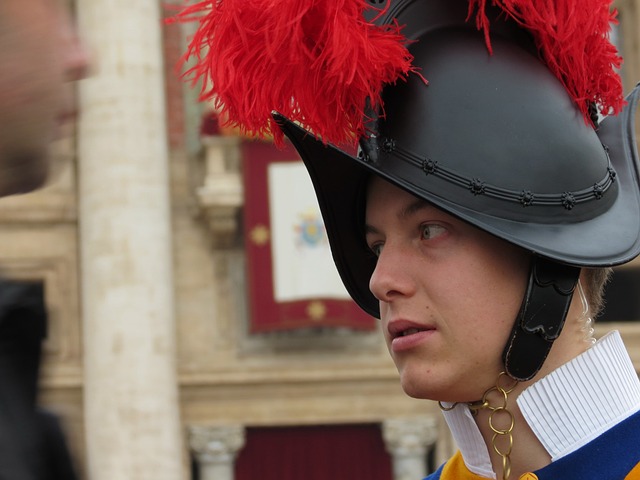Diplomatic missions and their personnel face unique challenges in complex environments. Executive protection for diplomats is essential to ensure their safety during foreign service, with specialized training and robust security measures. Diplomatic security services provide VIP protection, risk assessment, and advanced bodyguard techniques for high-level officials, navigating local customs and potential threats. This multi-faceted approach enhances personal security for diplomats worldwide, leveraging expert resources and collaborative practices to mitigate risks in an ever-changing global landscape.
In today’s complex geopolitical landscape, advanced training in situational awareness and personal safety is paramount for diplomats. Effective diplomacy demands a deep understanding of the unique challenges inherent in foreign missions, from navigating politically sensitive environments to securing high-level VIPs. This article explores comprehensive strategies, including executive protection techniques, to empower diplomatic security services, ensuring the well-being of international officials and fostering robust high-level diplomatic security worldwide. Discover how bodyguard services for international officials can revolutionize personal security for diplomats.
Understanding the Unique Challenges of Diplomatic Missions
Diplomatic missions face unique challenges that demand specialized training and robust security measures. When serving in foreign territories, diplomats often find themselves navigating complex political landscapes, cultural sensitivities, and potential security threats. These challenges can range from high-risk environments where they must be prepared for unexpected crises to the delicate balance of maintaining professional relationships with local authorities and host governments.
Executive protection for international diplomats is a critical aspect of ensuring their personal safety. Diplomatic security services play a pivotal role in providing bodyguard services for high-level officials, including VIP protection for diplomats during official visits, meetings, and social events. Given the sensitive nature of their work, professionals in this field must possess advanced skills to assess and mitigate risks effectively, employing state-of-the-art techniques and staying abreast of evolving security protocols.
Enhancing Situational Awareness: Training Techniques for Diplomats
Diplomats operating in complex and dynamic environments require enhanced situational awareness to navigate risks effectively. Advanced training programs should incorporate a multi-faceted approach, leveraging interactive simulations, scenario-based exercises, and debriefings to prepare diplomats for various scenarios, from high-risk zones to sudden crises. These techniques foster a deeper understanding of local contexts, potential threats, and appropriate response strategies.
Executive protection for international diplomats, often facilitated by diplomatic security services, should be a cornerstone of this training. Practicing VIP protection for diplomats ensures they are prepared for personal safety challenges while on official duties or during high-level meetings. Bodyguard services for international officials can also benefit from specialized training in high-level diplomatic security, equipping them with the skills to protect not just individuals but entire delegations and their sensitive information.
Personal Safety Protocols: Preparing for High-Risk Environments
In the fast-paced and often unpredictable world of diplomacy, ensuring personal safety is paramount, especially when navigating high-risk environments. Advanced training in executive protection for international diplomats plays a pivotal role in equipping them with the skills to anticipate and mitigate potential threats. Diplomatic security services have evolved to include comprehensive programs that focus on situational awareness, risk assessment, and the deployment of expert bodyguard services for international officials.
Diplomats engaging in high-level diplomatic security must be prepared for a range of scenarios, from securing venues during official events to managing personal safety while traveling. These protocols involve rigorous training in close protection techniques, surveillance detection, and crisis management. By mastering these skills, diplomats can better protect themselves and their colleagues, ensuring the successful execution of missions and fostering effective international relations.
Executive Protection Strategies: Protecting VIPs in Foreign Lands
In the dynamic and often unpredictable environment of international diplomacy, ensuring the safety of high-ranking officials, or VIPs, is paramount. Executive protection for international diplomats involves a specialized set of strategies tailored to the unique challenges faced when protecting individuals in foreign lands. Diplomatic security services must be adept at navigating unfamiliar territories, understanding local customs and potential threats, while maintaining the discretion and elegance expected of diplomatic protocols.
VIP protection for diplomats necessitates a multifaceted approach. This includes both physical security measures such as close personal protection (CPP) by highly trained bodyguards and more subtle strategies like threat assessment, risk management, and contingency planning. Professional bodyguard services for international officials are increasingly relied upon to provide high-level diplomatic security. These professionals are equipped with the expertise and resources to anticipate and mitigate risks, ensuring that diplomats can carry out their missions without compromise.
Building a Robust Diplomatic Security Network: Resources and Best Practices
Building a robust diplomatic security network is paramount to ensuring the safety and well-being of international diplomats. This involves integrating specialized executive protection for international diplomats and diplomatic security services that cater to the unique challenges of their roles. High-level diplomatic security requires a multi-faceted approach, leveraging both human resources and technology. Well-trained personnel, including dedicated bodyguard services for international officials, are essential for protecting VIPs during high-risk situations.
Effective practices include regular risk assessments, advanced situational awareness training, and the implementation of secure communication channels. By sharing best practices among diplomatic missions, governments can enhance their collective ability to safeguard diplomats and prevent potential threats. This collaborative approach fosters a culture of security consciousness, ensuring that personal security for diplomats and VIP protection for diplomats remain paramount in an ever-changing global landscape.
Advanced training in situational awareness and personal safety is indispensable for diplomats navigating complex global landscapes. By mastering these skills, they can better mitigate risks, enhance their effectiveness on mission, and ensure the high-level protective services, or executive protection, required to safeguard international officials, including VIPs. Integrating best practices from diplomatic security services and leveraging resources available within a robust diplomatic security network, diplomats can foster a culture of awareness and preparedness, ultimately bolstering both individual safety and mission success in high-risk environments.
